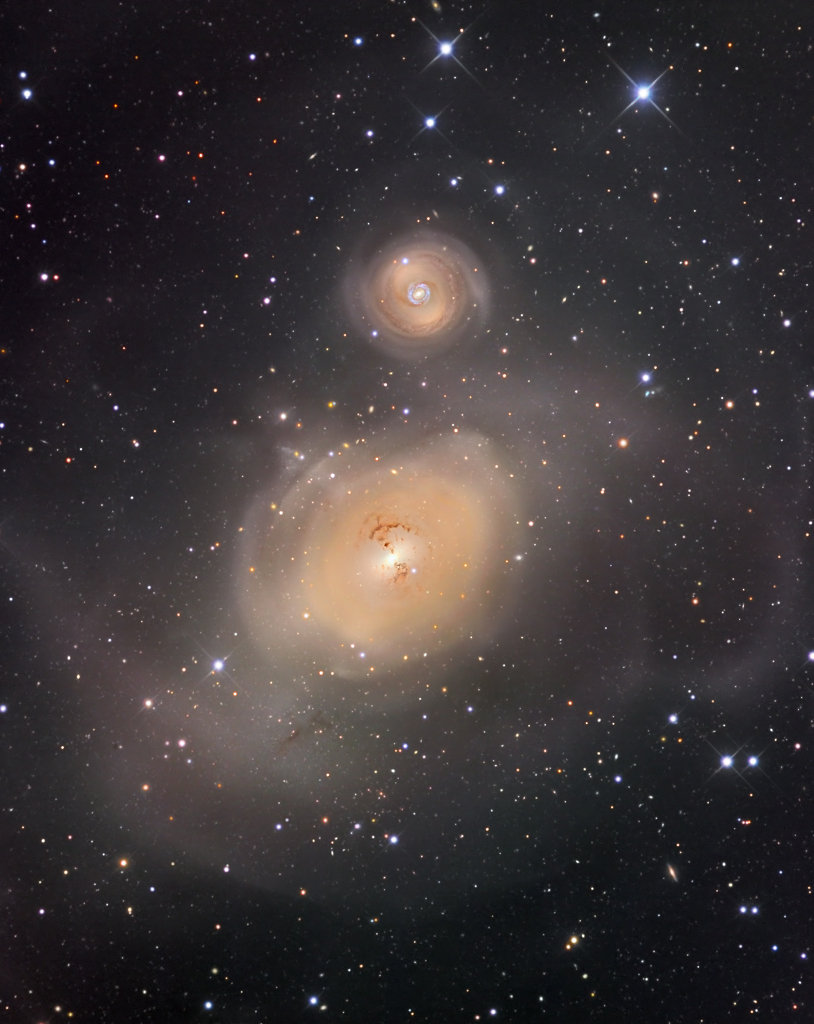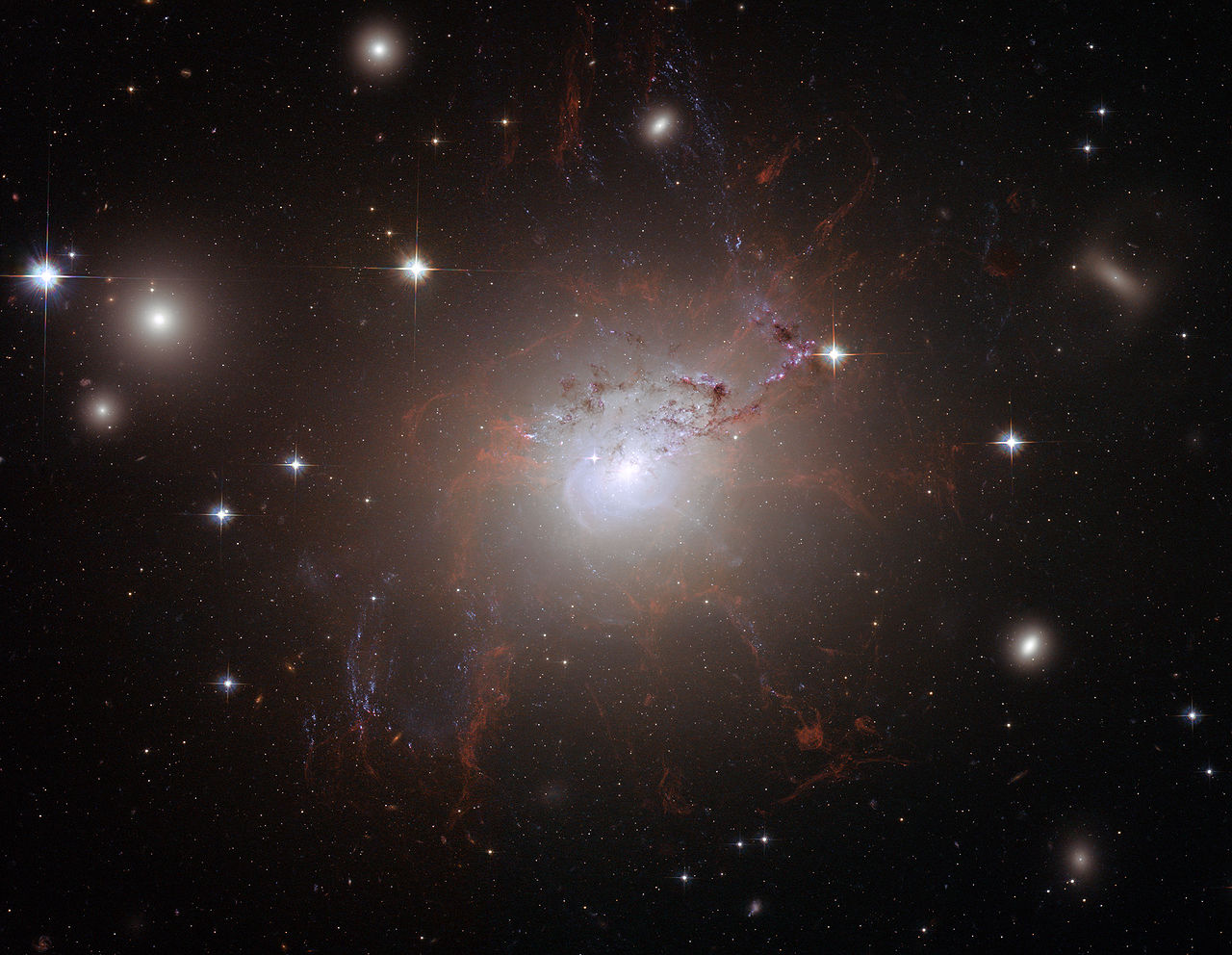Curly Spiral Galaxy M63 (cropped image).
Image Credit & Copyright: Sophie Paulin, Jens Unger, Jakob Sahner
Interacting lenticular galaxy NGC 1316 with curly tidal tails.
Credit: I don't know.
M63 is surrounded by some impressive tidal structures. But other galaxies are too, as you can see in the picture of interacting lenticular galaxy NGC 1316. The tidal structures around NGC 1316 are so impressive that they make NGC 1316 look like a barred galaxy with a large ring and two spiral arms!
Let's have a look at the inner workings of M63 and NGC 1316:
My guess is that both M63 and NGC 1316 may have consumed a small satellite galaxy, and their meals have given them indigestion. M63, the spiral galaxy, "should" have had a more clearly defined inner spiral structure, and NGC 1316, the lenticular galaxy, "should" have had a purely yellow, dust-free appearance, if the incorporation of a satellite galaxy hadn't been so upsetting. And neither of them "should" have had these large surrounding tidal structures, if they hadn't eaten one of their small satellite galaxies! Or so I think anyway.
Of course, in the case of NGC 1316, it is clearly interacting with other galaxies too, including NGC 1317. Or is it? Note that NGC 1317 appears quite unaffected by the proximity(?) of NGC 1316, whereas NGC 1316 is "bleeding tidal tails" all over! And surely the dusty debris across the inner face of NGC 1316 wasn't caused by NGC 1317? So I really think that the messy appearance of NGC 1316 is a result of it having swallowed a satellite galaxy and wondering where its indigestion pills are!
Let's look at two elliptical galaxies that really ate more than they could chew:
What has happened to M63 is obviously not so violent. The satellite galaxy that merged with M63 must have been quite small, but still big enough to have created a real global galactic disturbance.
Take a look at M63 again and note the wiggly blue line at 3 o'clock. In the first picture I posted, I asked what that blue line is, but it is clearly just a long line of star formation. A "long" line is the word for it! It must be thousands of light-years long! And there is nothing like it anywhere else in M63.
To the left of the blue line of star formation is a very pronounced dust lane, which is light brown in color in the APOD. There is nothing like this dust lane anywhere else in M63.
Note to the upper right of the wiggly blue line a small, faint gray clump embedded in the "head" of a tidal tail or a dust lane. That thing could be an evaporating satellite galaxy, if you ask me.
Have we caught the culprit?
Ann
 Curly Spiral Galaxy M63
Curly Spiral Galaxy M63




